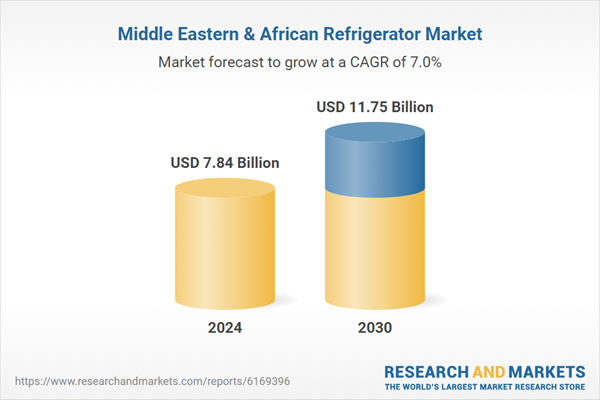Speak directly to the analyst to clarify any post sales queries you may have.
10% Free customizationThis report comes with 10% free customization, enabling you to add data that meets your specific business needs.
Market Drivers
Rising Urbanization and Expanding Middle-Class Population
One of the primary drivers of the refrigerator market in the Middle East & Africa (MEA) is the rapid pace of urbanization coupled with the growth of the middle-class population. Africa’s urban population is projected to surge dramatically, rising from 700 million to 1.4 billion by 2050. As cities expand and rural populations migrate to urban centers, the demand for modern household appliances, including refrigerators, continues to rise. Urban households not only seek essential appliances but also prefer advanced models that align with their lifestyle aspirations. According to UN data, Africa is experiencing one of the fastest urbanization rates globally, while Gulf nations in the Middle East already have high urban concentrations.This demographic shift is increasing the adoption of refrigerators, particularly in metropolitan areas where smaller families and nuclear households are becoming the norm, thereby fueling higher per-household appliance demand. Moreover, the growing middle-class income bracket across countries like Nigeria, Kenya, Egypt, Saudi Arabia, and the UAE is enabling consumers to afford mid-range and premium refrigerator models. This segment’s rising spending power is expected to significantly boost refrigerator sales in the coming years, particularly as consumers associate modern appliances with enhanced convenience and quality of life.
Key Market Challenges
High Energy Costs and Infrastructure Limitations
One of the major challenges facing the refrigerator market in the Middle East & Africa is the high cost of electricity and inconsistent power infrastructure in certain regions. While urban areas in countries like the UAE, Saudi Arabia, and South Africa benefit from reliable electricity, many rural and semi-urban areas in Africa face frequent power outages, voltage fluctuations, and limited grid connectivity.These issues increase the operational cost of refrigerators and affect their performance and lifespan, making consumers hesitant to invest in high-end or energy-intensive models. Additionally, rising electricity tariffs in some countries further discourage the adoption of larger or more technologically advanced refrigerators, particularly among price-sensitive segments. Manufacturers must therefore invest in designing energy-efficient, low-consumption models and provide solutions such as inverters or solar-powered options to address these infrastructure limitations, which adds complexity and cost to production.
Key Market Trends
Rising Adoption of Smart and Connected Refrigerators
A prominent trend reshaping the MEA refrigerator market is the increasing adoption of smart and connected appliances. Consumers, particularly in urban centers and affluent households, are showing growing interest in refrigerators equipped with Wi-Fi connectivity, mobile app control, and IoT integration. These smart refrigerators allow users to monitor and adjust temperature settings remotely, receive maintenance alerts, track inventory, and even suggest recipes based on available ingredients. The trend is further amplified by the expansion of smart home ecosystems, where refrigerators are integrated with other connected appliances for enhanced convenience. Manufacturers such as Samsung, LG, and Haier are increasingly launching models with AI-driven features and energy optimization, appealing to tech-savvy consumers. As lifestyle digitalization continues to accelerate, smart refrigerators are expected to capture a larger share of the market, driving premiumization and boosting average selling prices.Key Market Players
- Samsung Electronics Co., Ltd
- Whirlpool Corporation
- Robert Bosch GmbH
- LG Electronics Inc.
- AB Electrolux
- Panasonic Corporation
- Haier Smart Home Co., Ltd.
- Midea Group Co., Ltd.
- Hitachi Ltd.
- Godrej & Boyce Manufacturing Company Limited
Report Scope:
In this report, the Middle East & Africa Refrigerator Market has been segmented into the following categories, in addition to the industry trends which have also been detailed below:Middle East & Africa Refrigerator Market, By Type:
- Side-by-Side
- Top Freezer
- French Door
- Bottom Freezer
- Single Door
Middle East & Africa Refrigerator Market, By Distribution Channel:
- Supermarkets/Hypermarkets
- Multi-Branded Stores
- Online
- Others
Middle East & Africa Refrigerator Market, By Country:
- South Africa
- Saudi Arabia
- UAE
- Turkey
- Kuwait
- Egypt
- Rest of MEA
Competitive Landscape
Company Profiles: Detailed analysis of the major companies present in the Middle East & Africa Refrigerator Market.Available Customizations:
With the given market data, the publisher offers customizations according to a company's specific needs. The following customization options are available for the report.Company Information
- Detailed analysis and profiling of additional market players (up to five).
This product will be delivered within 1-3 business days.
Table of Contents
Companies Mentioned
The leading companies profiled in this Middle East & Africa Refrigerator market report include:- Samsung Electronics Co., Ltd
- Whirlpool Corporation
- Robert Bosch GmbH
- LG Electronics Inc.
- AB Electrolux
- Panasonic Corporation
- Haier Smart Home Co., Ltd.
- Midea Group Co., Ltd.
- Hitachi Ltd.
- Godrej & Boyce Manufacturing Company Limited
Table Information
| Report Attribute | Details |
|---|---|
| No. of Pages | 132 |
| Published | September 2025 |
| Forecast Period | 2024 - 2030 |
| Estimated Market Value ( USD | $ 7.84 Billion |
| Forecasted Market Value ( USD | $ 11.75 Billion |
| Compound Annual Growth Rate | 6.9% |
| Regions Covered | Africa, Middle East |
| No. of Companies Mentioned | 11 |









